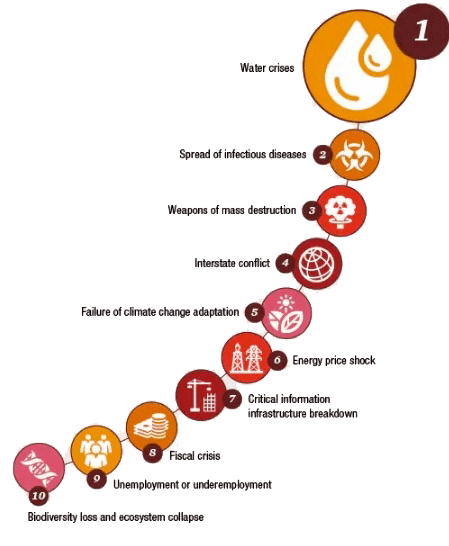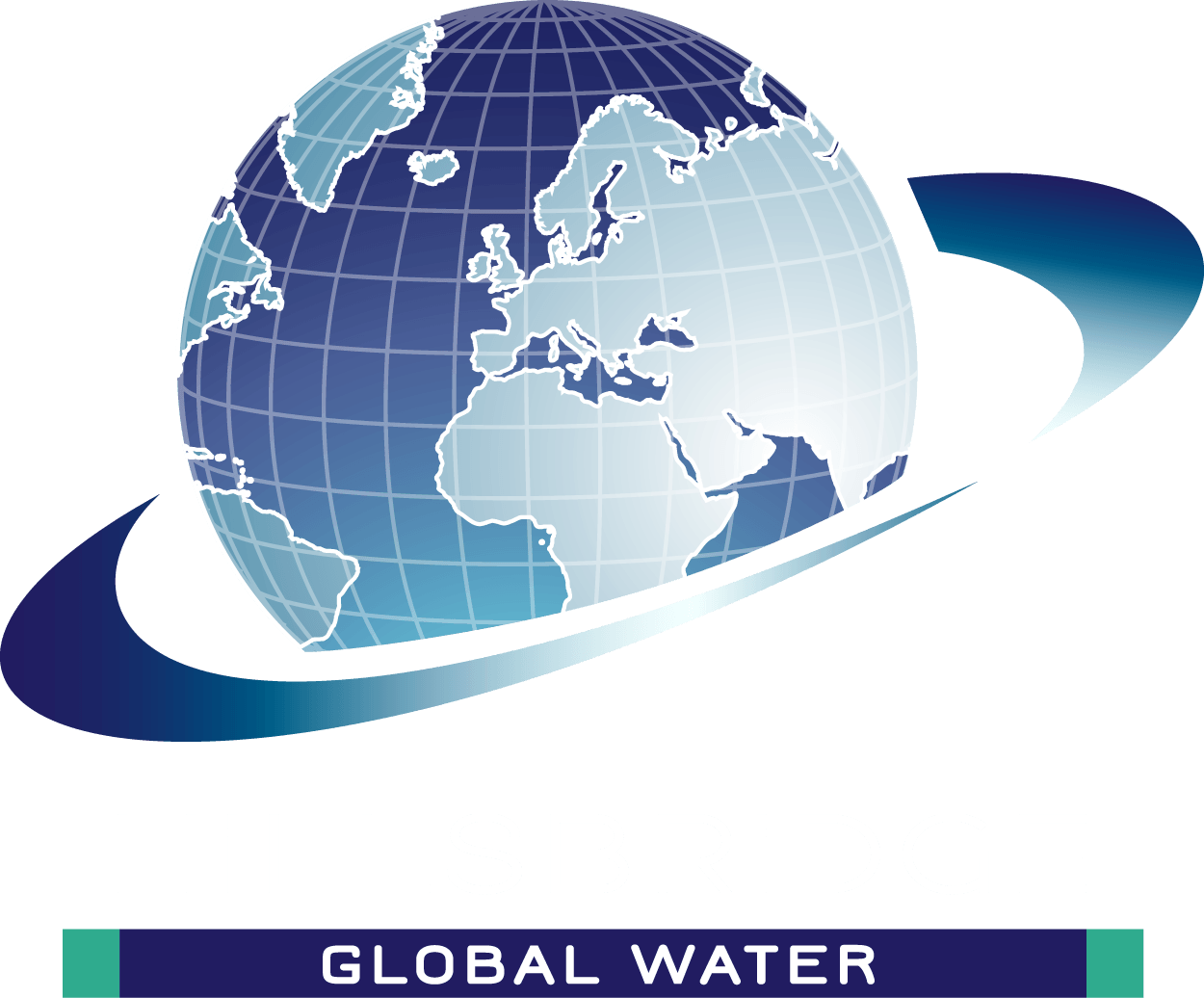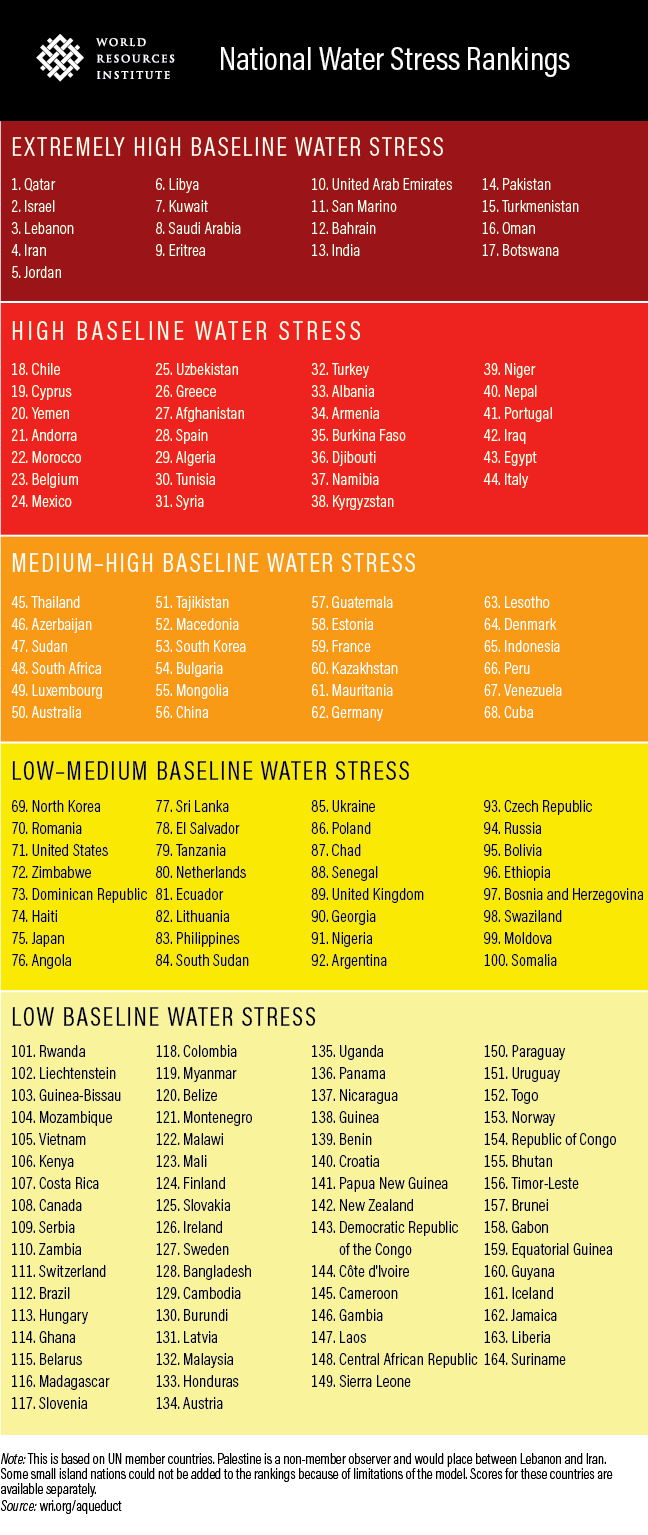"once-unthinkable water crises are becoming commonplace"
Water & Wastewater
A Business Risk
"Having too little or too much, or water that’s too dirty or too expensive
can have an impact on your bottom line & your reputation"
Water needs to be managed well. More than oil or talent, water is perhaps the most problematic of resources.
Enough Water of the Right Quality Needs to be
in the Right Place at the Right Time.
Water scarcity and water stress issues e.g. drought, flood, and inconsistent supply as well as pollution, impacts on business as usual and adds cost - whether directly in operations or further along in the value chain. It also needs to be managed well not only at the point the business wants to use it, but also as it discharges it back into the environment.
Water... A Challenge for Your Business?!!

Source: Pricewaterhouse Coopers
Where do you start to strengthen your resilience to water-related challenges and risks?
- Identify and understand how water-related risks will impact your operations and your growth strategies
- Take action to reduce and better manage your water use as water enters and leaves your operations
- Collaborate with the right partners for sustainable resilience to water issues right across your business
Middle East & North Africa (MENA)
Is the Most Water-Stressed Region on Earth
Twelve out of the 17 most water-stressed countries are in the Middle East and North Africa (MENA). The region is hot and dry, so water supply is low to begin with, but growing demands have pushed countries further into extreme stress.
The World Bank found out that this region has the greatest expected economic losses from climate-related water scarcity, estimated at 6-14% of GDP by 2050.
Yet there are untapped opportunities to boost water security in MENA. About 82% of the region’s wastewater is not reused.
Leaders in treatment and reuse are already emerging: About 84% of all wastewater collected in GCC countries is treated to safe levels, but only 44% goes on to be reused.
Source: World Resource Institute
Water Stress Is Not Your Destiny
Water stress is just one dimension of water security. Like any challenge, its outlook depends on management.
Water stress can be reduced by measures ranging from common sense to cutting-edge. There are countless solutions, but here are three of the most straightforward:
- Increase agricultural efficiency: The world needs to make every drop of water go further in its food systems. Farmers can use seeds that require less water and improve their irrigation techniques by using precision watering rather than flooding their fields. Financiers can provide capital for water productivity investments, while engineers can develop technologies that improve efficiency in agriculture. And consumers can reduce food loss and waste, which uses one-quarter of all agricultural water.
- Invest in grey and green infrastructure: Aqueduct’s new data shows that water stress can vary tremendously over the year. WRI and the World Bank’s research shows that built infrastructure (like pipes and treatment plants) and green infrastructure (like wetlands and healthy watersheds) can work in tandem to tackle issues of both water supply and water quality.
- Treat, reuse and recycle: We need to stop thinking of wastewater as waste. Treating and reusing it creates a “new” water source. There are also useful resources in wastewater that can be harvested to help lower water treatment costs.
The data is clear:
There are undeniably worrying trends in water. But by taking action now and opting for a better management, water issues can be solved for the good of people, industries, economies and the planet.
Source: World Resource Institute
Innovative Water & Wastewater Treatment Systems Integration

© 2024 Hillsbridge Global Water FZCO. All rights Reserved

